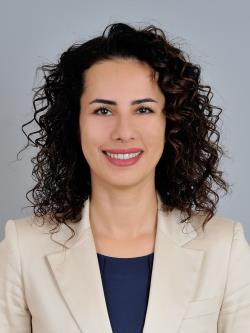Information Society in Times of Risk
International Community of Experts on Risk Information Management, Risk Models and Applications (RIMMA CoE), The UN Consultative Committee on Information Technology of China Association for Science and Technology (CAST-CCIT)
Session 222
WSIS aims to build a people - centric, inclusive, and development - oriented Information Society. In the context of an ever - changing world filled with various risks, this session focuses on the special demands that the Information Society faces during times of risk. These risks cover local, regional, national, cross - border, and global crises, as well as natural, technical, and humanitarian disasters, with special attention on highlighting demands, deficits and potentials of actors and organizations.
The UN's “all - of - society” principle, which originated from the AGENDA21 in 1992 and became a general principle starting from the Data Revolution activities in 2014, emphasizes the need for broad cooperation. The UN Sendai Framework for Disaster Risk Reduction 2015 - 2030 further specifies that stakeholders such as women, children, youth, persons with disabilities, poor people, migrants, indigenous peoples, volunteers, the community of practitioners, and older persons should be involved in the design and implementation of policies, plans, and standards. It also calls for closer collaboration among the public and private sectors, civil society organizations, academia, and scientific and research institutions, and encourages businesses to integrate disaster risk into their management practices.
This session will cover contributions taking into account the special circumstances of Information Management in times of Risk and the consequences for Risk Management (policies, anticipation, preparation, decision, action) in all phases of crises and all types of disasters.








-
 C3. Access to information and knowledge
C3. Access to information and knowledge
-
 C4. Capacity building
C4. Capacity building
-
 C5. Building confidence and security in use of ICTs
C5. Building confidence and security in use of ICTs
-
 C7. ICT applications: benefits in all aspects of life — E-science
C7. ICT applications: benefits in all aspects of life — E-science
-
 C10. Ethical dimensions of the Information Society
C10. Ethical dimensions of the Information Society
a. WSIS ACTION LINE 3- Access to Information and Knowledge: In times of risk, ensuring access to accurate and timely information is vital. This session will explore how to improve access to information for different stakeholders, especially during crises.
b. WSIS ACTION LINE 4- Capacity Building: Building the capacity of various actors to manage information and risks is essential. We will discuss ways to enhance the skills and knowledge of stakeholders involved in risk management and information handling.
c. WSIS ACTION LINE 5- Building Confidence and Security in the Use of ICTs: Information technology plays a crucial role in risk management. Ensuring the security and confidence in using ICTs during times of risk is a key aspect, which will be covered in this session.
d. WSIS ACTION LINE 7- ICT applications: The use of ICTs in various fields such as e - health, e - government, and e - emergency response can greatly improve risk management. This session will explore how to optimize these ICT applications during risk situations.
e. WSIS ACTION LINE 10- Ethical Dimensions of the Information Society: When dealing with information in times of risk, ethical issues such as the privacy of personal information and the accuracy of information dissemination need to be addressed. This session will focus on these ethical aspects.
-
 Goal 3: Ensure healthy lives and promote well-being for all
Goal 3: Ensure healthy lives and promote well-being for all
-
 Goal 9: Build resilient infrastructure, promote sustainable industrialization and foster innovation
Goal 9: Build resilient infrastructure, promote sustainable industrialization and foster innovation
-
 Goal 11: Make cities inclusive, safe, resilient and sustainable
Goal 11: Make cities inclusive, safe, resilient and sustainable
-
 Goal 13: Take urgent action to combat climate change and its impacts
Goal 13: Take urgent action to combat climate change and its impacts
-
 Goal 16: Promote just, peaceful and inclusive societies
Goal 16: Promote just, peaceful and inclusive societies
a. SDG 3-Good Health and Well–being: In times of risk, an information-rich society can use technologies to collect, analyze, and disseminate health - related information. For example, it can monitor the spread of diseases during disasters and provide timely health advice to the public.
b. SDG 9-Industry, Innovation and Infrastructure: Information technology, which is a key part of the information society, plays a crucial role in building resilient infrastructure. During times of risk, new technologies can be innovated to better manage disasters. For instance, smart sensors in infrastructure can detect potential hazards and transmit data for timely repairs.
c. SDG 11-Sustainable Cities and Communities: "Disaster induced community disruptions" is a major concern. The information society can help cities and communities become more resilient. Through data-driven urban planning, such as using GIS (Geographic Information System) data to identify high-risk areas and plan evacuation routes, and by enabling better communication during disasters to coordinate relief efforts.
d. SDG 13-Climate Action: Given that climate - related risks are part of the "times of risk" scope, the information society can contribute to climate action. It can provide accurate climate-change data through satellites and sensors, and use data analytics to model climate-related disasters. This information can be used to formulate climate-change mitigation and adaptation policies.
e. SDG 16-Peace, Justice and Strong Institutions: "Safeguarding personal and societal, economic and political human rights" in the topic is relevant. In risk situations, an information-transparent society helps maintain social order and justice. For example, ensuring fair distribution of resources during disasters through information-based monitoring systems, which is crucial for building strong and just institutions.
https://rimma.org/rimma-coe-wsis2025